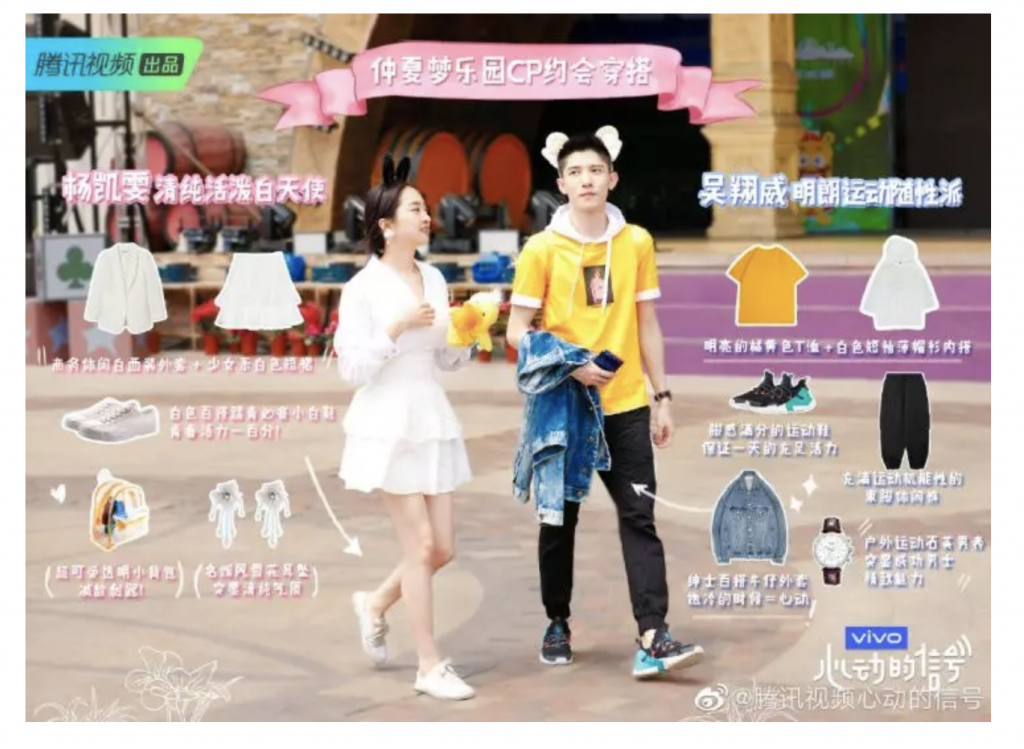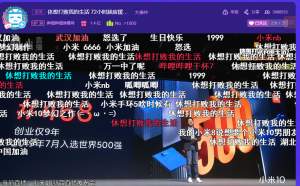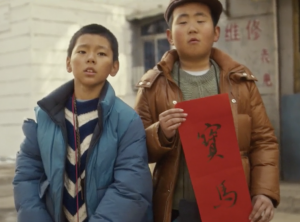
Fashion choices boldly highlighted on season 2 of “Heart Signal”
News From China
China’s big three streaming video sites (iQiyi, Youku, and Tencent Video) continue to engage in a fierce battle for supremacy that parallels the bigger fight among respective parent companies Baidu, Alibaba, and Tencent. All have made deep investments into content development without much regard to the impact on bottom lines, and in an effort to stop burning through cash, they are looking for more paying subscribers and brand involvement. The following are some key points from a report by Huayu:
- China’s 500-million-strong fan economy is a major force in this process, as fans are willing to follow successful IP and celebrities and spend money in the process. According to the report, 36 percent of fans are willing to spend RMB 100 to 500 per month on their favorite idols. Tencent Video recently sought to leverage this phenomenon by offering paying subscribers an advance opportunity to view the finale of hit costume drama “The Untamed” (陈情令), starring popular idols Wang Yibo and Xiao Zhan.
- As more brands become involved in sponsoring Chinese series, some shows are bringing in upwards of 20 sponsors and brands are increasingly willing to spend on multiple programs simultaneously.
- To stand out, some brands will take advantage of celebrity relationships and leverage their “dual identity” — the celebrity endorses a brand’s product in real life, while the character they play uses the products on television.
Following closely behind the big three streaming video sites on the content front is Mango TV, which is controlled by Hunan Broadcasting System. Last week it announced its “Big Mango Plan” (大芒计划) for collaboration with internet celebrities and idols. The site is building a new platform for emerging stars to promote their original content, and Mango will offer guidance on content management, opportunities to appear on its original shows, and brand partnerships. The plan is intended to address a perceived decline in the effectiveness of China’s KOLs (key opinion leaders) as a marketing tool.
Linking brands to e-commerce through entertainment is a compelling trend in Chinese marketing. Cookware maker Sanho has been a sponsor for all three seasons of the popular reality show “Chinese Restaurant” (中餐厅). Currently, Sanho is collaborating with another of the show’s sponsors, e-commerce platform Pinduoduo, to promote direct sales at lower price points, with Pinduoduo supporting Sanho’s efforts to establish its own brand from its origins as an OEM manufacturer.
Tencent-backed shopping app Mogu plays a prominent role in the second season of Tencent Video’s romance reality show “Heart Signal” (心动的信号). The show, which regularly highlights fashion, featured the female housemates consulting Mogu to choose outfits to wear on dates. According to Ent Group, the app saw an increase of 22,000 active female users in the week after broadcast, and peaked on WeChat and Weibo indexes as users searched for and discussed clothing items seen on the show.
A new brand of bottled water, XYStyle Water, has emerged from the long-running TV series “Love Stories in the Countryside” (乡村爱情), an example of entertainment IP being transformed into a consumer product. The brand has long existed on the series as a fictional business venture, with its Chinese name (象牙山冰泉, “Xiangya mountain ice spring”) derived from the village of the show. The product launch featured a series of 12 bottles, each displaying a different character from “Love Stories” with an associated QR code for a short video starring that character.
With increasing government support for esports in China, brands are getting in on the game. Shanghai recently hosted the 2019 International Dota 2 Championships, the world’s largest gaming tournament. The five participating Chinese teams were supported by 27 brands across a variety of consumer sectors. Among them was direct-to-consumer snack brand Three Squirrels, which sponsored Vici Gaming (VG). Three Squirrels marketed to VG fans through the team member’s vlogs and other content streams, dressing its popular namesake mascots in VG uniforms and giving each a role as brand ambassadors for VG. The partnership also aims to combat the perception of gaming as “unhealthy” by promoting the snack company’s core products of nuts and dried fruit.
News in English
- China’s video streaming sites and their investors see interactive content as the next big thing, but consumers appear to be lukewarm towards the concept of working for their entertainment. Abacus
- The “old” online media format of vlogs is getting a new life in China, and brands have poured in to work with popular Chinese vloggers. This guide looks at four of the key players competing in the space: Xigua Video, Bilibili, Douyin/TikTok, and Weibo. Radii
- Back in the U.S. market, Hero Cosmetics announced that it was increasing its focus on influencer marketing via TikTok, after finding that campaigns run on the short video platform were far outperforming their Instagram counterparts. Mobile Marketing
- Alibaba’s Taobao will host a two-week maker festival in Hangzhou starting September 12 to showcase more than 1,000 products. It will include a section devoted to new takes on traditional culture modeled on the set of Youku’s breakout costume drama “Longest Day in Chang’An” (长安十二时辰). Alizila
- China leads the world in movie theater ad spending, and is expected to account for $1.8 billion of the global total of $4.6 billion in spending in the sector, or more than double the take in the U.S. CNBC
Partner News






